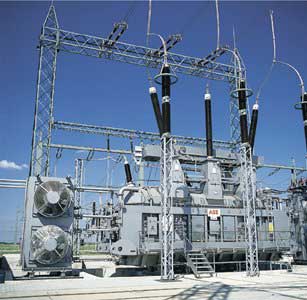Our Take on Transformational Development
A couple of weeks ago some of you challenged us to explain what we meant by ‘transformational development’. Subsequently in an email sent to the other BPF convenors Chris Roche wrote that for him ‘transformational development’ is particularly about changes in the social and power relations and structures that produce and reproduce inequality, remedy injustice, non-fulfillment of human rights and undermine well-being. We understand transformational development being about changes in power relations and the current inequitable ‘rules of the game’. In other words, transformational development is as much about the how as the what.
All this has led us to reflect about the role of aid institutions, projects and practitioners in transformational change. Three issues that have occurred to us are (1) the ideology that shapes the design of aid projects (2) whether aid can be unintentionally transformative or conversely intentional but fail to achieve its goals (3) the relative importance of aid in supporting transformation.
Firstly, given that most development projects make claims about contributing to ‘empowerment’, it is easy to assume that we are all engaged in a transformational project. Yet experience suggests this is not always the case. Many programmes are what Srilatha Batliwala has called ‘empowerment-lite’ from which the need to address inequitable power relations is absent.
Enhancing women and girls’ access to education as a means to employment that will enable them to get jobs is often portrayed as a means to their empowerment. Recent research by the IDS Women’s Pathways to Women’s Empowerment programme argues this theory of change is too linear and simplistic, assuming women are more autonomous than they are in practice.[1] The extent to which education leads to transformation in the lives of women is determined by the specific power relationships that shape the contexts in which they live. Without tackling structures that constrain them, education may produce limited social change.
Similarly whether social accountability projects have the potential to support transformative development depends on if and how they try to address multiple power relations. Research by Jha et al illustrates, social mobilization that focuses on increasing access to assets and services can end up benefiting elites and falling short in terms of contributing to structural change that benefits the poorest and most marginalised people. Many external attempts to promote social accountability have failed precisely because they use a neo-liberal frame or are apolitical in their approach i.e. do not analyse or address or vested interests or power relations. Or because the external nature of the support is underpinned by consensual notions of civil society that can be used to undermine and delegitimise opponents, particularly if they use ‘unruly’ processes to claim their rights.
Some of us find Ackerman’s paper on the difference between World Bank social accountability projects and rights based approaches (RBA) useful for highlighting the limitations of transactional development projects. He argues that social accountability projects designed from a neo-liberal perspective frame rights as outcomes of projects rather than modes of intervention. They conflate neo liberal economic development goals with human rights that are assumed met as a result of access to basic necessities without doing much to change the rules of the game. Conversely, a key objective of RBA is to change power relations through the means as well as the end.
Secondly, there is the challenge of intentionality and unexpected consequences. This merits some unpacking. Projects designed with transformative objectives may fail because of failure to understand the political context and the extent of resistance from entrenched elites, as with some social accountability projects already mentioned. However, complexity theory and our own experience confirm that life is just full of surprises and things often turn out to be very different from what anyone had planned. Aid agencies and the organizations that receive support are not homogeneous. Projects framed in neo-liberal terms can be successfully captured and converted to more transformative purposes with field staff doing one thing and reporting back something else (and of course the converse can happen as well as we know happens a lot with programmes aiming to change gender relations). This leads neatly to the roles of aid in transformational change.
Thirdly, aid agencies – donors and NGOs – need to be modest about the extent to which they can contribute to transformative development. Ackerman makes an important point that where as when comparing transactional social accountability projects are underpinned by visions of development in “which governments, foundations or international agencies channel resources to “help” excluded groups as belonging to people.’ A recent publication about supporting empowerment from the OECD Development Assistance Committee drives this point home: aid is more likely to be effective when harnessed to already initiated locally owned processes.
What do the ideologies that shape aid projects their unpredictable nature and the roles of agencies and practitioners have to do to with the politics of evidence? You will have to wait and see – it will be the focus of the next blog…
[1] Cornwall, A. and Edwards, J., 2010, ‘Introduction: Negotiating Empowerment’, IDS Bulletin, vol. 41, no. 2, pp 1-9 see for overview: http://www.gsdrc.org/go/display&type=Document&id=3773

Comments are closed.